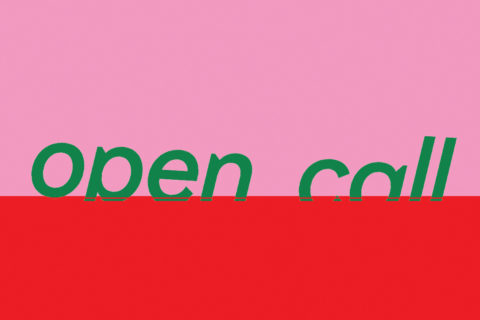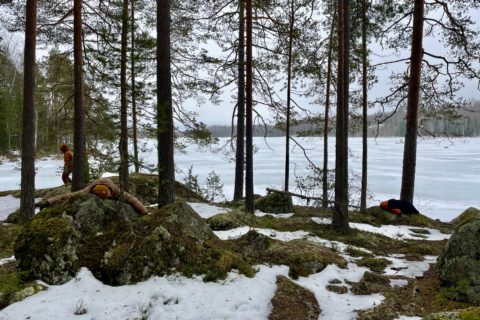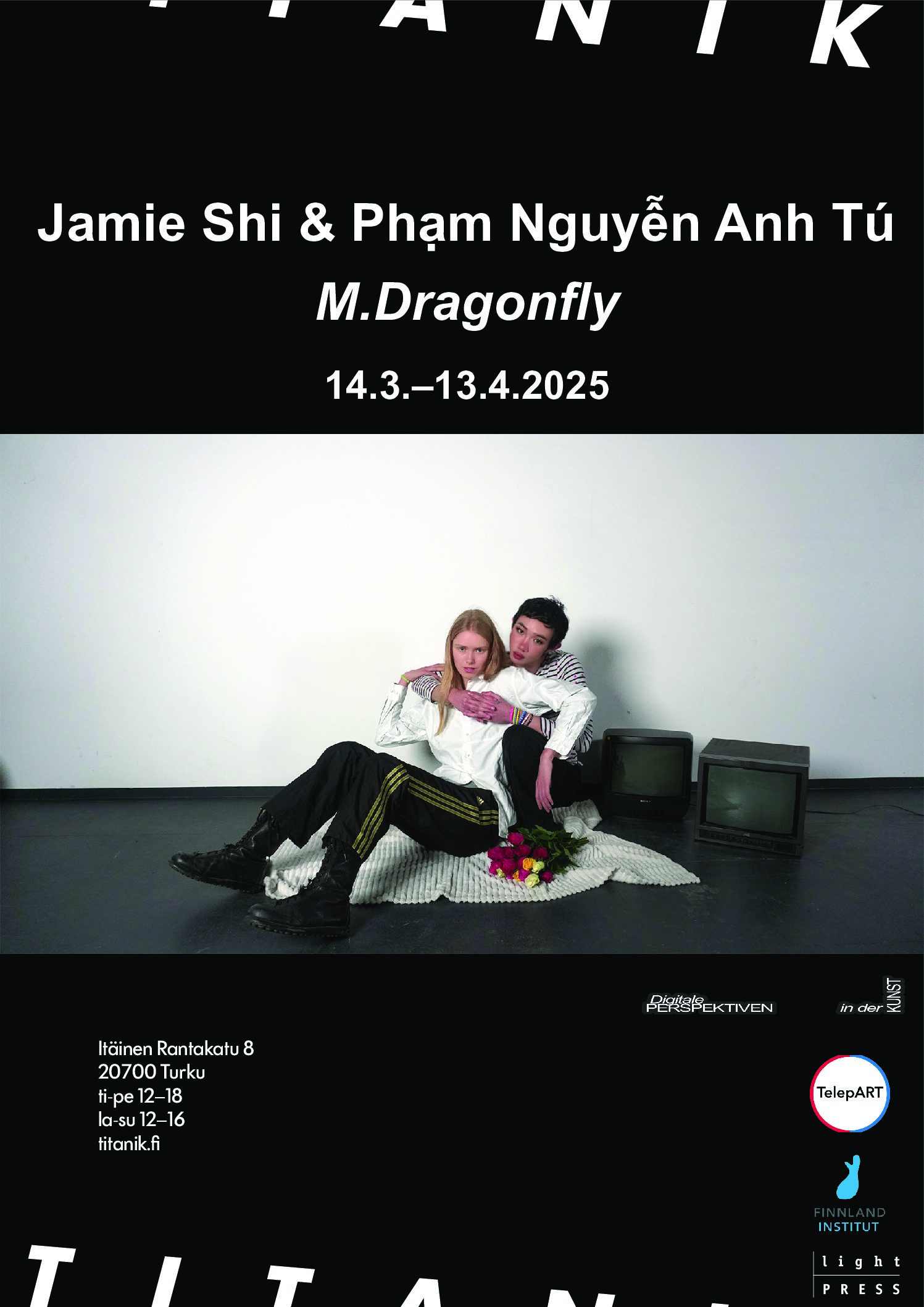About Jan Lütjohann’s worshop on carving wood at Titanik
A necessary ritual for a capitalist society
Before the participants arrive, the space is prepared by the artist. Two benches, a few pillows, a pile of wooden sticks, seven knives placed in a row, a few sharpeners, and a pile of wood chips and bits. It all looks like a well thought arrangement for performing a ritual. Jan starts with describing carving “safer than driving a car.”
Care and Hospitality
Social rules
He goes on to explain what he calls social codes or rules of the event. When carving be sober and relaxed. Don’t participate in the workshop if you are anxious, disturbed or in a hurry to leave. Not only does it affect your own work, but it also affects the general mood and other people’s activity. Don’t carve under the effect of alcohol or drugs. When passing on a knife to others, do not direct the sharp end of the knife towards them. When carving do not move the knife towards yourself.
Choice of sticks and knives
The wooden sticks, ash, maple, and other woods, all leftovers from cut branches and trees from the surrounding area carefully collected by the host. He has avoided challenging shapes, branches, and hard wood to ease the process for his guests.
The choice of knives is also a manifestation of the artist’s consideration towards the group and the social environment. Knives are chosen to be short and small to look and feel safer for the participants of a public event. The artist thinks there’s a higher social barrier and uncomfortability when the knives are big or long. While technically any sort of knife can be used for carving.
The practice of caring for the group is tangible in every aspect of the workshop. A concept that is quite natural and self-initiated in some cultures to the extent that it does not even bear a name whereas in other cultures it’s organized and named by the system.
Slow down, Rest!
Jan explains that It’s easier to curve when you take smaller bites, just like chewing. Don’t hurry, slow down! We discuss how wood carving in Indonesia being done so sophisticated and delicate as the result of the slow pace and process as woodwork is done while people wait for the harvest season and for the rice to grow. When time is not scarce.
Silence, sound of knife scratching the wood. A sudden loud sound interrupts the conversation. Someone’s stick breaks and jumps to the floor. Gentle laughter from the group.
I’m thinking about how neoliberal capitalism is altering the labor, leisure, rest trichotomy inherited from the industrial revolution. Jan mentions that our process is the very opposite of the postindustrial use of wood. Participants continue to talk about themselves, their lives, and practices.
Another sudden sound, another stick breaks. And once again silence.
After a while the activity becomes extremely meditating and natural conversations take over. Just like when knitting, coloring a coloring book, or putting puzzles together.
– “Why is it important not to use a machine?” One participant asks while calling what we do an unusual activity for this time.
– “To waste time instead of electricity.” Someone answers.
It seems for the artist the workshop is a clear statement. The atmosphere indicates that it’s also well understood by the participants. Human against the machine. Rejecting machines, Jan, whose practice is very much in line with this workshop declares autonomy and independence. He doesn’t need electricity and he doesn’t need charged batteries. It only costs him time.
While carving and trying to create the smoothest surface from the wood I think about the necessity of rest for bodies as finite as ours. I think about how little I have rested recently and about the pressure of missing out. It feels like rest is more a burden than a right. It can be hard to find a moment to rest and when you can find the time, you might feel like you should be working on something instead. One of the participants disagrees with me. “Not everyone has this feeling of missing out. Some people just want to pay their bills. We as artists are not freer and more anonymous than the people who mass produce our tools. Application after application just to pay the bills.”
Silence, sound of knife scratching the wood.
The product
One can say that Jan’s workshop had no outcome. None of the participants seemed to produce anything concrete, not even an unfinished product. Our labor power was not commodified, and nothing was produced to be sold or bought. Jan’s workshop challenges us to slow down, to be undistracted, and maybe even unproductive participants. But we carved a lot and discussed a lot and sympathized with one another. We talked about The Praise of Laziness and how the advanced capitalist model considers rest and its unproductiveness a threat to its core; the leverage of guilt that most of the global population begin to feel when being unproductive. We talked about and experienced non-activity; rest!
The prospect of a future where human labor is obsolete has always been part of the sci-fi imagination, though we’re told today it is rapidly approaching everyday reality. As advances in technology have allowed production and consumption to seep into seemingly every facet and hour of human life, many of us feel pushed to our limit. The expectation of being productive all the time, achieving, reaching goals, presenting results. Doing and doing, faster, more efficient. The pressure of being as productive as the people who mass produce the tools we use or even as efficient as the machines that produce our tools.
If machines are seen as a source, rather than a solution, to a myriad of global problems today, Lütjohann asks, if it’s possible to unlearn work and imagine relying on resources such as time and human power instead to embrace and cherish a very different society _ a world without machines, electricity and charged batteries.
Bita Razavi kirjoitti tekstin Jan Lütjohannin työpajasta Daylight, Traces, Talks.
Teksti on osa vuoden 2023 TITANIK-julkaisua. Kirjoittajat vierailevat näyttelyissä ja esityksissä ja tuottavat tämän jälkeen niiden kanssa resonoivan tekstin. Aiempia tekstejä on luettavissa täällä.
+++++
Bita Razavi wrote the text after taking part in Jan Lütjohann’s workshop Daylight, Traces, Talks.
This text is a part of TITANIK 2023 publication. Authors are invited to produce a text responding to each exhibition and performance. You can read the earlier contributions here.




